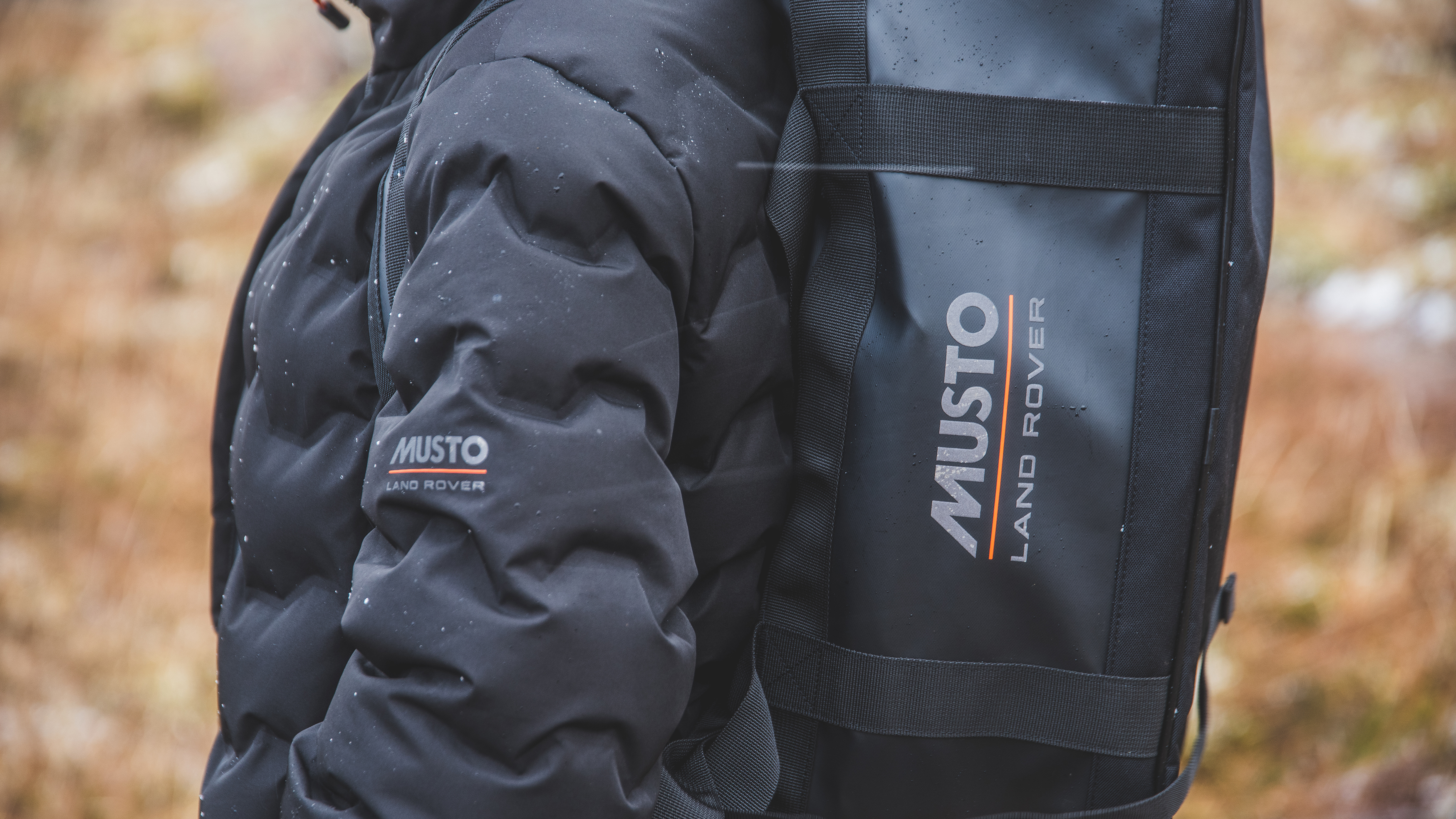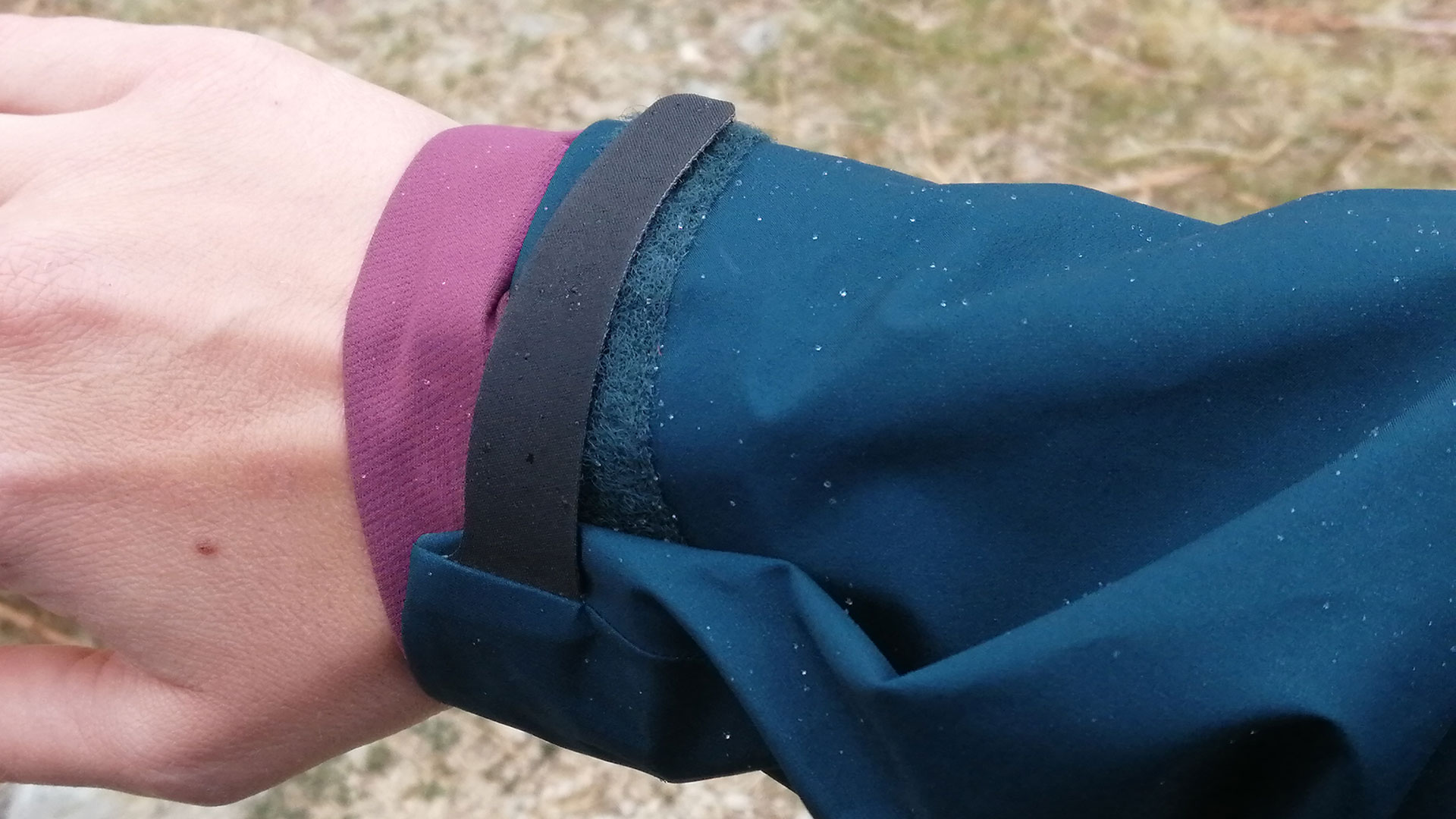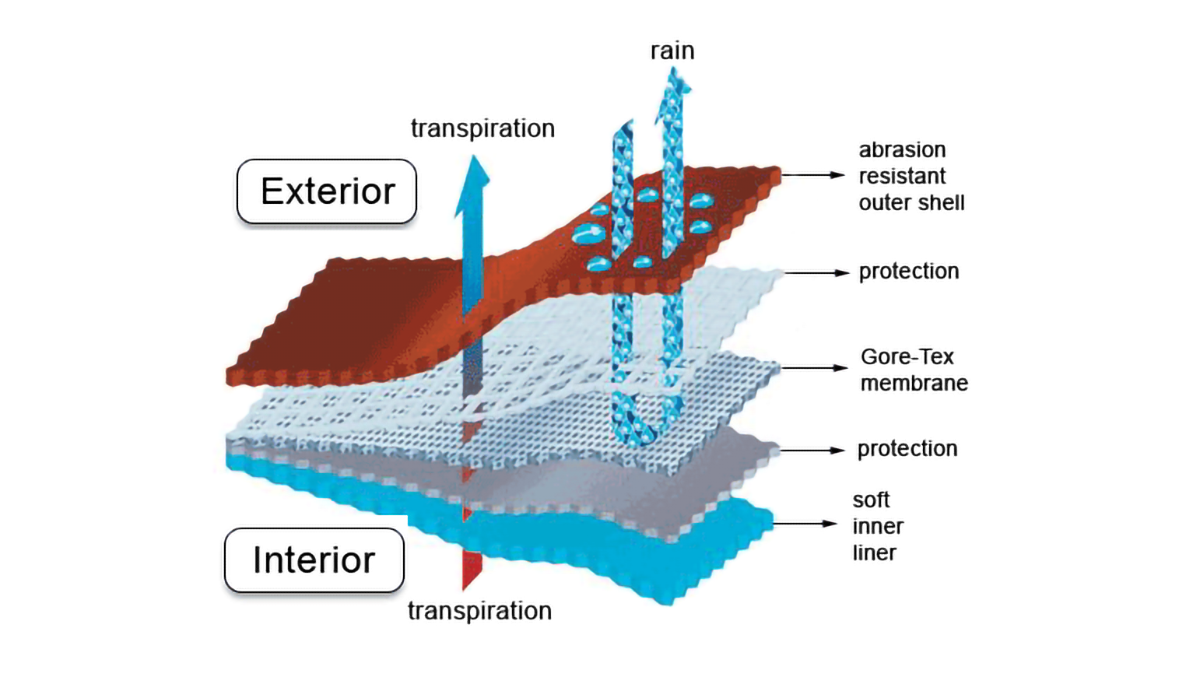What is Gore-Tex? Everything you need to know about this waterproof technology
It's the tech behind most of your waterproof kit, but what exactly is Gore-Tex, and how does it work?


Whenever you research outdoor gear, you will hear about Gore-Tex. But what is Gore-Tex, how does it work, and why do you need it? Gore-Tex is a brand name for a waterproof, windproof, breathable, durable fabric, designed by WL Gore & Associates in 1969. You'll find many of today's best waterproof jackets use Gore-Tex technology as well as the best ski jackets around. It's not just for clothing, though, you'll find Gore-Tex will crop up repeatedly if you're looking for the best hiking boots for men or women – sometimes indicated by a GTX suffix on the product name.
Note too that although as waterproofing tech goes, Gore-Tex is by far and away the most commonly known, but it isn't the only option on the market. Since the original patent expired, some companies have created their own breathable, waterproof fabrics, using similar technology.
What does Gore-Tex do?
Gore-Tex is waterproof (and by extension, windproof), but it's also breathable. While people buy Gore-Tex because of its waterproofing properties, it's actually the 'breathable' part you should be paying attention to.
A breathable fabric is one that stops liquid water getting in, but lets water vapour out. That's important because, As we move during hiking, skiing or other outdoor activity, we get warm and perspire. That means our bodies constantly emit water vapour. If we wear a fully impermeable outer layer, that water vapour gets trapped inside and condenses into water droplets.
That is exactly what happens if you wear a plastic pocket-poncho or similar. It'll keep you dry from rain, but you'll quickly get sweaty, and your base layer will become damp. This starts off as just being uncomfortable, but if you're somewhere remote, it can also become dangerous.
When the water vapour from perspiration cannot get out, the wearer cannot cool down, which creates a vicious cycle of increased perspiration. That leads to overheating (hyperthermia) and dehydration. Wet layers also tend to lose their insulating properties, so, if an active person stops moving and stops generating heat, they can get cold very quickly, leading to hypothermia.
Finally, Gore-Tex is durable, which is another point of difference from a plastic poncho. It can be worked and shaped into different garments, and is even used for medical applications.
Get all the latest news, reviews, deals and buying guides on gorgeous tech, home and active products from the T3 experts

How does GoreTex work?
Gore-Tex is made from PTFE, which is better known by its trademark name: Teflon. When PTFE is stretched very quickly, it creates a microporous structure that is 70% air. The pores in this membrane are around 20,000 times smaller than a water droplet, so liquid water cannot pass through them. But the pores are 700 times larger than a water molecule, so water vapour can get out.
The Gore-Tex membrane is bonded to an anti-abrasion outer layer to protect it. This outer layer then has a Durable Water Repellent (DWR) applied to it. The DWR stops the outer layer becoming saturated with water, which would prevent water-vapour getting out, reducing the breathability and causing damp patches on the inside of the fabric.
This basic construction is a '2-layer' waterproof fabric. If an inner layer is also bonded to the Gore-Tex membrane, it creates a more durable '3-layer' fabric.

How to care for your GoreTex clothing
Over time, the outer-layer’s DWR can get worn down, leading to saturation, reduced breathability and damp patches. This makes it seem like your Gore-Tex fabric has lost its waterproofing. But if you tumble-dry or iron the garment, the DWR is re-invigorated, and your garment becomes breathable again.
GoreTex versions
Gore-Tex now has several sub-ranges, including Gore-Tex Pro and Gore-Tex Infinium. Here's a look at the differences between Gore-Tex vs Gore-Tex Pro.

Ash Bhardwaj is a writer, film-maker and podcaster, who tells unfamiliar stories about familiar places. He travels for adventure, history and current affairs – often involving long, uncomfortable walks. Ash hosts The First Mile, an immersive travel podcast.